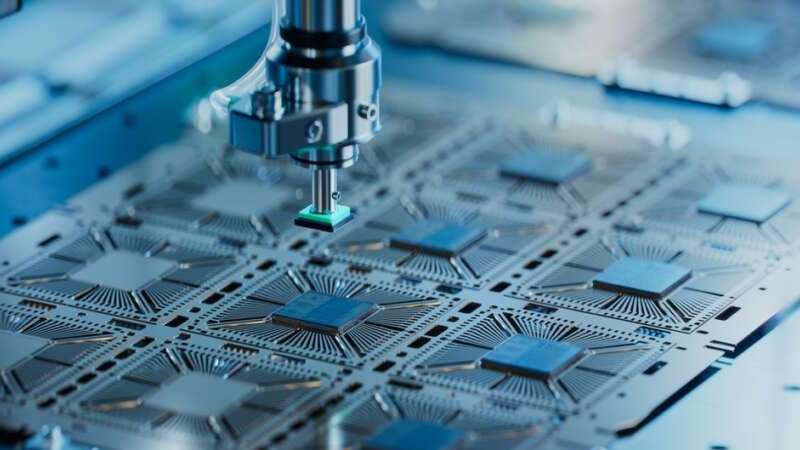
The National Institute of Standards and Technology (NIST) announced Wednesday that it is opening a competition with $100 million in funding to demonstrate how AI tech can assist in developing new sustainable semiconductor materials that meet industry needs and can be adopted in five years.
“For the U.S. semiconductor industry to flourish in the long-term, it must be able to develop innovative and commercially competitive technologies to sustainably produce materials and manufacture chips in a way that protects the environment and local communities,” NIST’s Oct. 2 press release says.
CHIPS for America anticipates awarding up to $100 million in funding to recipients that develop university-led, industry-informed collaborations about AI-powered autonomous experimentation (AI/AE) relevant to sustainable semiconductor manufacturing.
“Right now, new semiconductor materials often take years to be production-ready and are incredibly resource-intensive. If we’re going to quickly build up America’s semiconductor manufacturing base, in a way that’s sustainable over the long term in the face of increasing threats from the climate crisis, we need to leverage AI to help develop sustainable material processes quickly,” said Secretary of Commerce Gina Raimondo.
“With this new program, the Biden-Harris Administration will harness the vast capabilities of AI to unleash the full potential of our workers and innovators, while building a more secure and enduring domestic semiconductor industry,” she said.
AI/AE has emerged as a potentially game-changing approach to accelerating materials research and development, NIST said.
According to the agency, AI/AE combines automated synthesis and characterization tools with an AI “planner” to determine the next round of an experimental campaign, vastly accelerating the design of new materials and the acquisition of materials data. In enabling federated research across multiple locations, AI/AE can create opportunities for collaborations across established research universities, emerging research institutions, industry, and national laboratories.
Addressing sustainability challenges presents an opportunity to better engage universities, including emerging research institutions, to conduct high-impact semiconductor research and development and to grow semiconductor research talent, NIST said.
“We have a unique opportunity to make the United States a world leader in efficient, safe, high-volume, and competitive semiconductor manufacturing,” said NIST Director Laurie Locascio. “This CHIPS for America funding opportunity will help bring about sustainable manufacturing processes and materials to meet increasing demands for sustainability and safe working environments in perhaps as few as five years.”
NIST said it will refine the program’s structure, cost, and other additional details in the upcoming notice of funding opportunity that will be released later this year.
